Vegan Diabetes Diet: Foods To Eat, Benefits, And Precautions
Manage your weight and blood sugar levels with this popular diet plan.
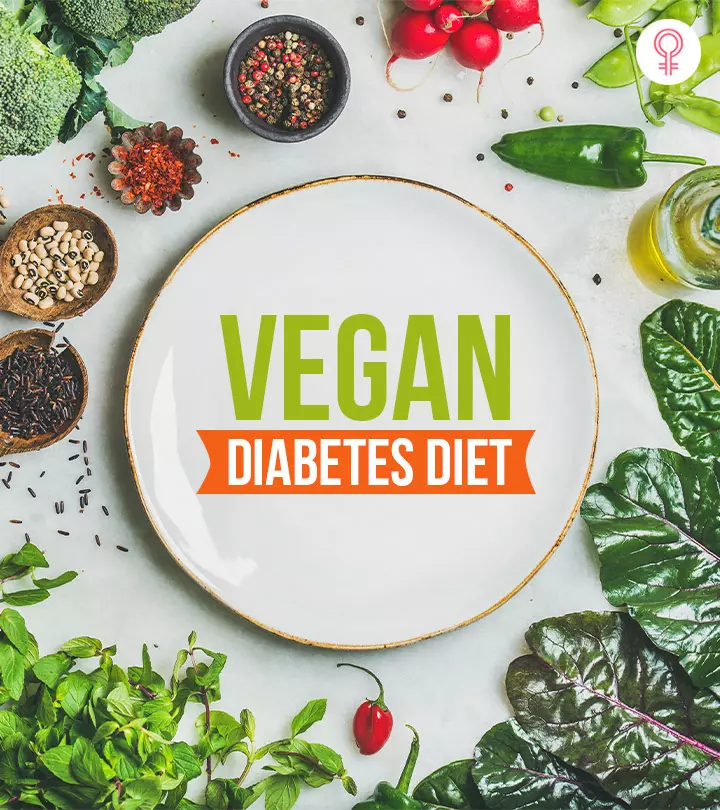
Image: Shutterstock
A vegan diabetes diet is beneficial for people with chronically elevated and high blood sugar. This diet includes plant-based foods rich in protein, dietary fiber, complex carbohydrates, and healthy fats that help lower high blood sugar (1). But, not all plant-based vegan foods are healthy. For example, potato chips and bagels are vegan, but they not going to help you reach your health-related goals! That’s why it is best to consult a dietitian or a diabetes expert if you want to go on a vegan diet.
We reached out to some diabetes experts to help us understand how to manage and control blood sugar on a vegan diet. This post discusses everything we learnt from them. Ready to start your dietitian-approved vegan diet for high blood sugar? Scroll down!
In This Article
Definition: What Is The Vegan Diabetes Diet?
According to the Academy of Nutrition and Dietetics, appropriately planned vegetarian and vegan diets are healthy, can provide adequate nutrition, and can be beneficial for reducing the risk of certain diseases (2).
A vegan diabetes diet is a dietary strategy to manage diabetes through the consumption of only plant-based foods and avoiding all animal-sourced products (honey, yogurt, cheese, milk, fish, chicken, etc.), processed foods, and saturated fats.
Kaytee Hadley, RDN, MSNHL, CPT, says, “Vegan diets can prevent, manage, and even reverse type 2 diabetes and prediabetes.” She emphasizes that “the more plants on your plate, the better.”
A questionnaire study involved the responses from 516 participants who switched to a vegan diet. The results revealed that 91% of the people followed it due to animal welfare reasons, 73% due to environmental reasons, and 60% switched to a vegan diet due to various health aspects.
But does eating a plant-based diet actually help reverse or manage diabetes? Is there any research study to back this claim?
Key Takeaways
- A vegan diabetes diet refers to a plant-based diet for people with chronic high blood sugar levels.
- A no animal protein, vegan diet not only aims at avoiding junk to keep your sugar levels in check, but also helps maintain your weight, cholesterol, and fat levels.
- It may also help wth diabetes and reduce risks of metabolic syndrome as well.
Benefits: Why The Vegan Diet Is Good For Diabetes
A vegan or plant-based diet has been studied by researchers extensively. Such a diet was found to have positive results on many health conditions, including diabetes (3).
A vegan diet can be used as a diabetes prevention tool and for improving blood sugar management, according to the American Diabetes Association (4).
Dr. Mubashar Rehman, Ph.D., says, “Managing diabetes is about controlling the body’s glucose levels. A vegan diet makes it easier to control not only the sugar levels but also the cholesterol intake and saturated fats. This is why going on a vegan diet is beneficial for diabetic patients.”
Here are the 7 reasons a vegan diet is good for people with diabetes.
1. May Help Manage Weight
Reducing and managing weight is the primary strategy to control diabetes. The American Diabetes Association confirms that people who eat a plant-based diet have a lower BMI (5).
Brittany Lubeck, MS, RD, says, “Vegan diets are high in nutrients like fiber and antioxidants. A vegan diet, especially one that primarily consists of whole foods like fruits, vegetables, whole grains, and lean protein, tends to be lower in carbohydrates than the modern Western diet.” Many studies have also shown that vegan diets help reduce body weight and BMI in people with diabetes (1), (6).
2. May Help Manage Insulin Resistance
Insulin is a hormone that encourages glucose uptake by cells, where it is converted to usable energy. The saturated fat found in animal products contributes to inflammation and belly fat, causing insulin resistance. Insulin resistance hampers glucose uptake by cells and leads to high blood sugar. Studies have proven that a plant-based or vegan diet helps improve blood sugar control by making the body more insulin sensitive (1), (7).
3. May Help Manage HbA1c Levels
HbA1c or hemoglobin A 1c levels are tested to diagnose diabetes and prediabetes. An HbA1c value of 5.7% to 6.4% is diagnosed as prediabetes, while that of 6.5% or higher is diagnosed as diabetes. Hemoglobin’s main function is to carry oxygen from the lungs to all parts of the body. Excess glucose in the blood causes the hemoglobin to get coated with glucose (8). A study found that people who consumed a plant-based diet reduced HbA1c values compared to those on conventional diets (9).
4. May Help Manage LDL Cholesterol Levels
Consumption of excess red meat and animal products and processed foods can elevate LDL cholesterol levels. This may eventually block arteries and lead to cardiovascular issues (10). But eating a vegan diet and exercising regularly can help lower LDL cholesterol. The American Journal of Clinical Nutrition confirms that people on a vegan diet tend to have low LDL cholesterol levels and a reduced risk of heart disease (11).
5. May Reduce Diabetes-Related Complications
Major diabetes-related complications include kidney disease, diabetic retinopathy, neuropathy, and nephropathy. Studies have proven that a plant-based or a vegan diet helps reduce the risk of diabetic retinopathy, chronic kidney disease, neuropathy, and nephropathy (12).
6. May Reduce Metabolic Syndrome Risk
Metabolic syndrome is a cluster of conditions including obesity, high cholesterol, and high blood pressure. It increases the risk of heart disease and insulin resistance. As per a study, consuming a plant-based diet can help reduce the risk of metabolic syndrome by 56%. A plant-based diet also helps reduce inflammation that helps prevent excess fat accumulation (13).
7. Promotes Psychological Wellbeing
A vegan diet can also help improve psychological wellbeing. Researchers studied the effect of a plant-based diet on people with diabetes. They found that a plant-based diet helped reduce HbA1c levels (reduced blood sugar) and cholesterol as well as improved emotional wellbeing. It reduced depressive symptoms and improved the quality of life in people with diabetes (14).
Going on a vegan diet is the best way to manage diabetes or reverse prediabetes. But not all vegetables and fruits are ideal for people with diabetes. One has to choose low-GI foods and also be mindful not to consume vegan junk food (like potato chips). Read on to know what are the key nutritions to consider in this diet.
Key Nutritional Considerations For A Vegan Diabetes Diet
- Focus On Whole Foods: Choose whole, unprocessed foods like vegetables, fruits, whole grains, legumes, nuts, and seeds. These are rich in fiber, which helps control blood sugar and keeps you feeling full (15).
- Balance Your Meals: Include a mix of carbohydrates, protein, and healthy fats in every meal. This combination slows down the digestion of carbs, preventing sharp blood sugar spikes (16).
- Watch Your Carbs: While carbs are part of a healthy diet, be mindful of portions. Opt for complex carbs like quinoa, oats, and sweet potatoes, which have a lower impact on blood sugar than refined carbs like white bread or sugary snacks (17).
- Healthy Fats Are Important: Add sources of unsaturated fats like avocados, olive oil, flaxseeds, and walnuts to your diet. These fats are good for your heart and help with long-term blood sugar management (18).
- Be Mindful Of Sugar: Natural sweeteners like maple syrup or agave should be used sparingly. Instead, satisfy your sweet tooth with fresh fruits that provide fiber and nutrients.
- Monitor Micronutrients: Some nutrients like vitamin B12, iron, calcium, and omega-3 fatty acids can be lower in vegan diets. Consider fortified foods or supplements as needed, especially for B12.
Now that you know this, read to know the foods to eat and avoid.
Eat: Foods List For The Vegan Diabetes Diet
- Vegetables: Broccoli, cauliflower, bitter gourd, bottle gourd, spinach, chard, arugula, kale, edamame, cabbage, Chinese cabbage, purple cabbage, scallions, carrot, green beans, squash, onion, etc.
- Fruits: Apple, grapefruit, muskmelon, avocado, strawberries, plum, pears, oranges, lime, lemon, and tangerines.
- Whole Grains: Barley, sorghum, wheat, broken wheat, red rice, black rice, brown rice, quinoa, millet, and amaranth.
- Protein: Lentils, beans, tofu, mushrooms, teff, mock meat, and nutritional yeast.
- Healthy Fats: Olive oil, avocado oil, rice bran oil, sunflower seeds, flax seeds, melon seeds, pepita, chia seeds, pistachios, macadamia, Brazil nuts, and moderate amounts of peanut butter, almond butter, cashew butter, and sunflower seed butter.
- Beverages: Water, fenugreek seed water, freshly pressed fruit or vegetable juices, and tea and coffee without cream and sugar.
- Herbs And Spices: Rosemary, thyme, dill, cilantro, fenugreek, cinnamon, pepper, cardamom, star anise, coriander, cumin, turmeric, cayenne pepper, ginger, garlic, etc.
That’s a long list of foods you can eat! Take a screenshot and save it to refer to it when you go grocery shopping again. But there are also foods that you must avoid when on a vegan diet for diabetes. What are they?
Avoid: Foods Not To Eat
- Sugary Foods: Sugar, cakes, pastries, candies, doughnuts, dried fruits, maple syrup, high fructose corn syrup, packaged sauces, etc.
- Refined Carbs: White rice, bread, pasta, refined flour, and breakfast cereal.
- Trans Fats: Chips, wafers, onion rings, onion blossom, biscuits, cookies, dairy whiteners, frozen foods, ready-to-eat foods, canned foods, etc.
- Fruits And Vegetables: Potato, sweet potato (without skin), beetroot, green peas, pumpkin, watermelon, pineapple, papaya, and sapodilla.
- Fats And Oils: Salted nuts, safflower oil, and corn oil.
- Beverages: Packaged fruit and vegetable juices, alcohol, tea or coffee with sugar and cream, and sports drinks.
- Others: Fish, meat, sausage, salami, milk, yogurt, cheese, honey, etc.
Knowing what to eat and avoid is the first step to managing diabetes. The next step is to design a meal plan that will work for you. Before that, let us look at a few tips on planning a meal.
Meal Planning Guidance
- Decide meals for the week to avoid last-minute choices.
- Fill half your plate with non-starchy veggies, a quarter with protein, and a quarter with whole grains.
- Cook staples like beans and grains in bulk for easy use.
- Keep snacks like veggies with hummus or nuts on hand.
- Choose low-glycemic foods like oats, sweet potatoes, and legumes.
- Watch portion sizes, especially for carbs.
- Use herbs and spices for flavor instead of salt or sugar.
- Make simple meals like salads or stir-fries.
- Enjoy occasional vegan treats like date balls or dark chocolate.
- Stick to regular mealtimes to stabilize blood sugar.
Now you may refer to the following sample vegan diabetes diet plan.
Dana shares her experience of adopting a vegan lifestyle on her blog. She writes, “Eating vegan, I felt more energetic, alert, and didn’t get tired after I ate. I was quicker on my feet and overall I felt happier (i).”
| Meals | What To Eat |
|---|---|
| Early Morning (7:00 a.m.) | 2 teaspoons fenugreek soaked in water overnight |
| Breakfast (8:00 a.m.) | Avocado toast (whole-wheat bread) + Grapefruit juice |
| Snack (10:30 a.m.) | ½ cup muskmelon |
| Lunch (12:30 – 1:00 p.m.) | ½ cup quinoa with boiled chickpeas + ½ cup cooked or raw veggies and greens |
| Snack (4:00 p.m.) | 5-6 cucumber slices with ¼ cup homemade hummus |
| Dinner (6:30 – 7:00 p.m.) | 1 cup roasted cauliflower, green beans, bell peppers + 3 oz. pan-tossed tofu |
Your vegan diabetes diet does not have to be boring. The diet plan mentioned above includes nutritious plant-based foods that have flavor and crunch.
 Quick Tip
Quick TipIn addition to the diet, you also must take care of your lifestyle to manage diabetes. The following section takes you through certain lifestyle tweaks that you can make.
Lifestyle: Improvements To Manage/Reverse Diabetes
- Exercise Regularly
Exercising and staying active are crucial for diabetes management. Mix cardio and strength training to keep your workout routine fun (19). Get 4 to 5 hours of exercise per week to reduce BMI and body weight and reduce the risk of diabetes-related complications like cardiovascular disease, retinopathy, neuropathy, and nephropathy (20).
 Quick Tip
Quick Tip- Follow A Routine
A well-thought-out routine that accommodates your daily activities and integrates the new diet and lifestyle seamlessly is the best way forward. Without a routine, you will not be able to plan and achieve your goal – to manage and probably reverse diabetes. Create a weekly routine, make to-do lists, and journal your progress. - Stay Stress-Free
Staying stress-free is easier said than done. But conscious practice gradually helps reduce stress. There are many ways to practice being stress-free. Start by spending at least 20 to 30 minutes by yourself. You also can learn a new skill to keep your mind engaged productively. Understand that not all your problems require immediate attention – and neither can all problems be solved always. Make smart choices while dealing with problems by deciding if a problem deserves your time at all. Finally, get 7 to 8 hours of sleep. Sleeping reboots your brain, which will help you think clearly and make wise decisions. - Join Support Groups
A support group can help you discuss and talk about diabetes in a closed circle of people. You will also be able to exchange recipe ideas or meet workout friends to keep you motivated to exercise regularly. - Have A Positive Outlook
Dealing with diabetes is not easy. Your food habits and lifestyle that you are so accustomed to must change completely. The mantra to success is to have a positive attitude. You will be able to manage and possibly reverse diabetes if you take all the limes that life’s throwing at you and make lemonade without sugar in it!
Your diet, exercise, and other lifestyle changes will work together to help you manage diabetes. However, being on a vegan diabetes diet may also cause nutritional deficiencies in some. While taking supplements can help, one must also know which ones to go for. Read the next section.
Precautions: How To Overcome Nutritional Deficiencies
Brittany Lubeck,MS, RD,
says “Vegans may need to take a few supplements to prevent nutrient deficiencies. They need to know what nutrients they are not getting from their diet, as some nutrient deficiencies can cause serious issues.” She advises considering taking the following supplements after consulting your doctor:
- Vitamin B12
Vitamin B12 is only found in animal foods. Hence, vegans must take this nutrient in supplement form or through fortified vegan foods. - Calcium
Although you can get calcium from some plant-based foods, getting enough as a vegan can be difficult. - Vitamin D
Your body can synthesize vitamin D from the sun, but it may be a good idea for vegans to take a vitamin D supplement as well. Vitamin D increases calcium absorption, and since calcium may be hard to come by for vegans, this could be an essential supplement to add to the list. - DHA
DHA, or docosahexaenoic acid, is an omega-3 fatty acid. Your body can use another type of omega-3 called ALA (alpha-linolenic acid), found in some plant-based foods, to synthesize DHA – but that may not be enough DHA. - Protein
It can be a challenge to eat enough protein without a daily intake of animal foods. Use plant-based protein powders (brown rice, pea, pumpkin, or hemp) to reach your protein goals. - Iron
There are two types of iron – heme and non-heme. While non-heme iron is found in some plant foods, heme iron is only found in animal foods. However, heme iron is more easily absorbed than non-heme iron. Hence, vegans may need to take an iron supplement or multivitamin that contains iron to prevent a deficiency.
The vegan diabetes diet involves eating vegetables, fruits, whole grains, and lean protein and eliminating the intake of trans fats and saturated fats. Moreover, whole foods are low in simple carbohydrates and rich in fiber, which helps increase satiety and reduce energy intake. This leads to better management of blood sugar levels and other metabolic-related diseases. The diet also works to reduce insulin resistance, improve HbA1c levels, and reduce “bad” cholesterol. However, a vegan diet may result in vitamin B12, calcium, vitamin D, iron, and protein deficiencies, so take supplements accordingly.
Frequently Asked Questions
Is keto or vegan diet better for people with diabetes?
While both options may lead to weight loss, studies suggest that restricting the carbohydrate intake in a ketogenic diet might be more effective in regulating blood sugar levels (21).
Why do vegans get diabetes?
While a plant-based vegan diet may help reduce blood sugar levels, it won’t prove to be fruitful if you load up on sugar-rich food items and refined carbohydrates. These would ultimately increase your risks of diabetes, especially if you have a sedentary lifestyle.
Discover the power of a vegan diet in managing diabetes in this video! Explore nutrient-rich plant-based foods that help stabilize blood sugar levels and improve overall health as well as expert tips to embrace a delicious and diabetes-friendly vegan lifestyle.
Personal Experience: Source
StyleCraze's articles are interwoven with authentic personal narratives that provide depth and resonance to our content. Below are the sources of the personal accounts referenced in this article.
(i) Thinking About Going Vegan? Here is My Experience.https://metaphysicalfreedom.com/2018/07/27/thinking-about-going-vegan/
References
Articles on StyleCraze are backed by verified information from peer-reviewed and academic research papers, reputed organizations, research institutions, and medical associations to ensure accuracy and relevance. Read our editorial policy to learn more.
- A Low-Fat Vegan Diet Improves Glycemic Control and Cardiovascular Risk Factors in a Randomized Clinical Trial in Individuals With Type 2 Diabetes
https://care.diabetesjournals.org/content/29/8/1777 - Position of the Academy of Nutrition and Dietetics: Vegetarian Diets
https://www.jandonline.org/article/S2212-2672(16)31192-3/fulltext - Plant-Based Dietary Patterns and Incidence of Type 2 Diabetes in US Men and Women: Results from Three Prospective Cohort Studies
https://www.ncbi.nlm.nih.gov/pmc/articles/PMC4907448/ - Vegetarian Diets in the Prevention and Management of Diabetes and Its Complications
https://diabetesjournals.org/spectrum/article/30/2/82/32272/Vegetarian-Diets-in-the-Prevention-and-Management - Preparing to Prescribe Plant-Based Diets for Diabetes Prevention and Treatment
https://spectrum.diabetesjournals.org/content/25/1/38 - A plant-based diet for the prevention and treatment of type 2 diabetes
https://www.ncbi.nlm.nih.gov/pmc/articles/PMC5466941/ - Plant versus animal based diets and insulin resistance prediabetes and type 2 diabetes: the Rotterdam Study
https://pubmed.ncbi.nlm.nih.gov/29948369/ - Hemoglobin A1C
https://www.ncbi.nlm.nih.gov/books/NBK549816/ - Plant-based Diet for HbA1c Reduction in Type 2 Diabetes Mellitus: an Evidence-based Case Report
https://pubmed.ncbi.nlm.nih.gov/30333278/ - How cholesterol clogs the arteries
https://www.ncbi.nlm.nih.gov/pmc/articles/PMC2248407/ - Health effects of vegan diets
https://academic.oup.com/ajcn/article/89/5/1627S/4596952 - Perspective: Plant-Based Eating Pattern for Type 2 Diabetes Prevention and Treatment: Efficacy Mechanisms and Practical Considerations
https://academic.oup.com/advances/advance-article/doi/10.1093/advances/nmab063/6296092 - The Prevention and Treatment of Type 2 Diabetes Mellitus with a Plant-Based Diet
https://pbdmedicine.org/the-prevention-and-treatment-of-type-2-diabetes-mellitus-with-a-plant-based-diet-published/ - Effectiveness of plant-based diets in promoting well-being in the management of type 2 diabetes: A systematic review
https://www.researchgate.net/publication/328620369_Effectiveness_of_plant-based_diets_in_promoting_well-being_in_the_management_of_type_2_diabetes_A_systematic_review - Dietary fibre and whole grains in diabetes management: Systematic review and meta-analyses
https://pubmed.ncbi.nlm.nih.gov/32142510/ - Dietary protein is important in the practical management of prediabetes and type 2 diabetes
https://www.sciencedirect.com/science/article/pii/S0022316622086047?via%3Dihub - Physiology, carbohydrates
https://pubmed.ncbi.nlm.nih.gov/29083823/ - Dietary fats and prevention of type 2 diabetes
https://www.ncbi.nlm.nih.gov/pmc/articles/PMC2654180/ - The essential role of exercise in the management of type 2 diabetes
https://www.ncbi.nlm.nih.gov/pmc/articles/PMC5846677/ - Exercise and Type 2 Diabetes
https://pubmed.ncbi.nlm.nih.gov/32342452/ - Low-Carb and Ketogenic Diets in Type 1 and Type 2 Diabetes – PMC
https://www.ncbi.nlm.nih.gov/pmc/articles/PMC6566854/
Read full bio of Ella Davar
Read full bio of Ravi Teja Tadimalla
Read full bio of Sindhu Koganti







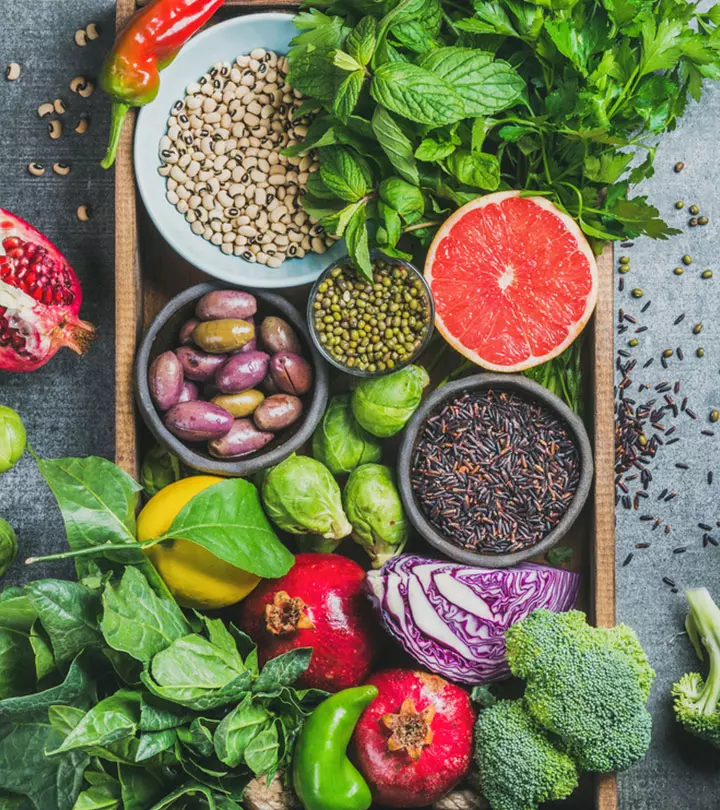


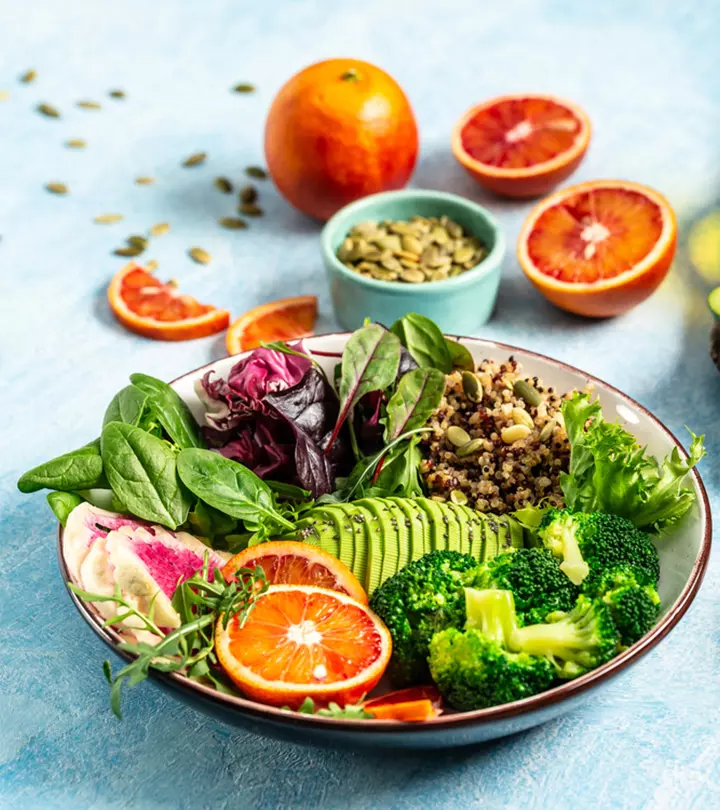

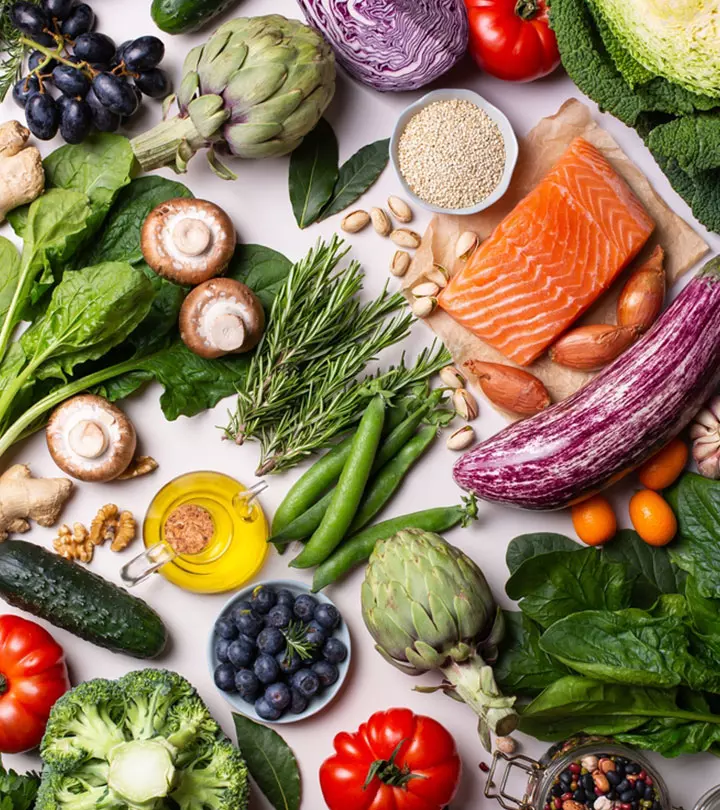
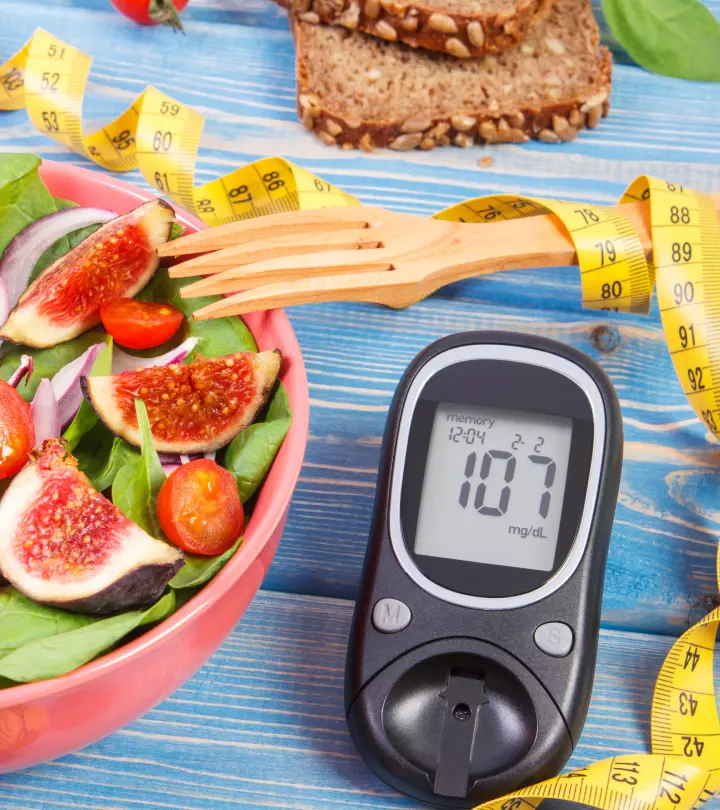
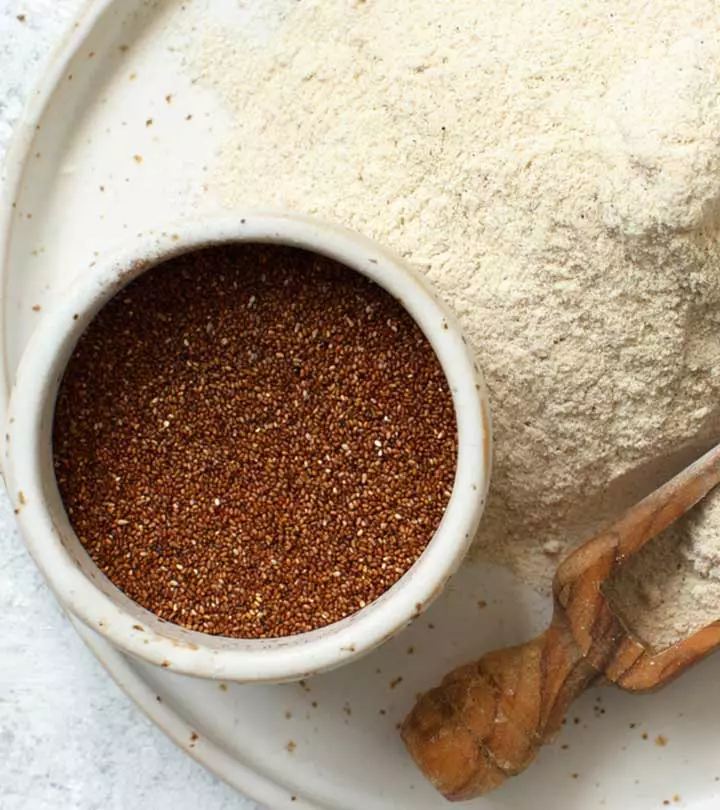
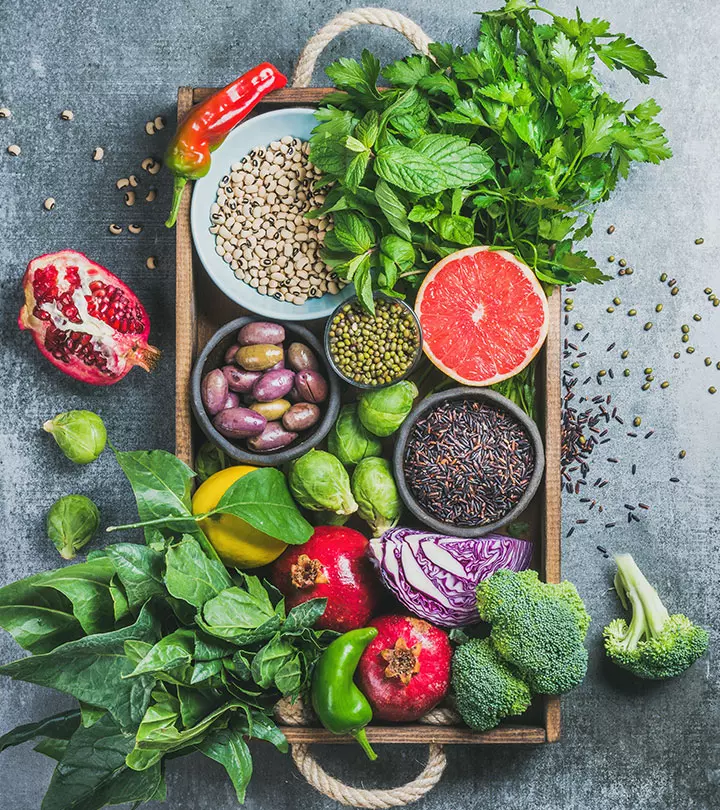
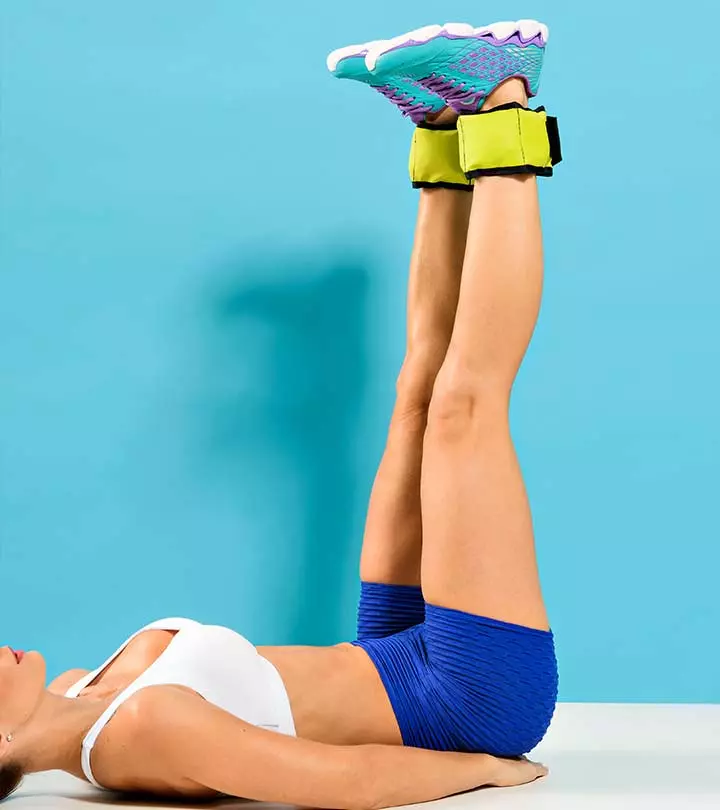
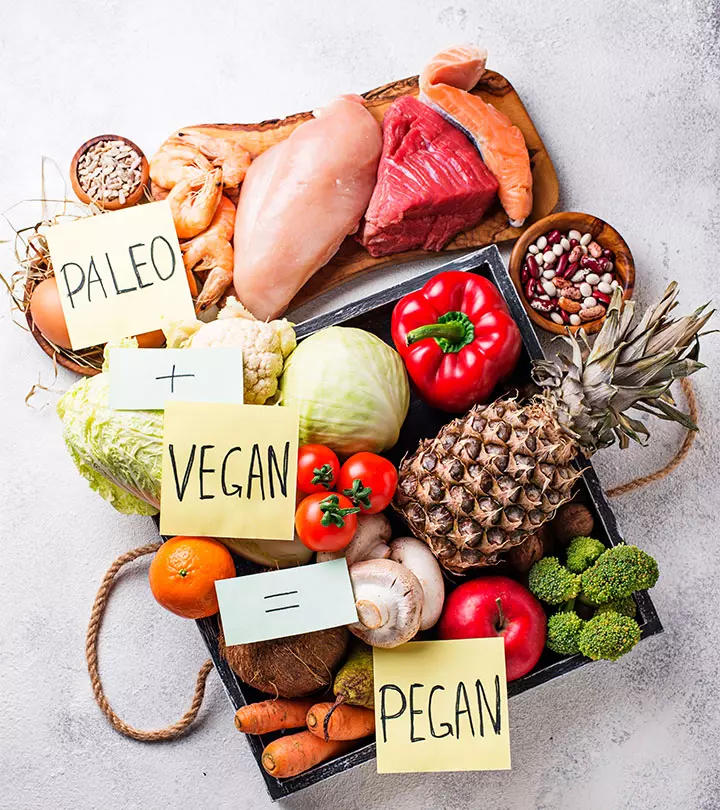

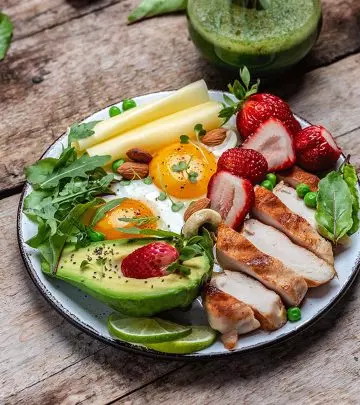



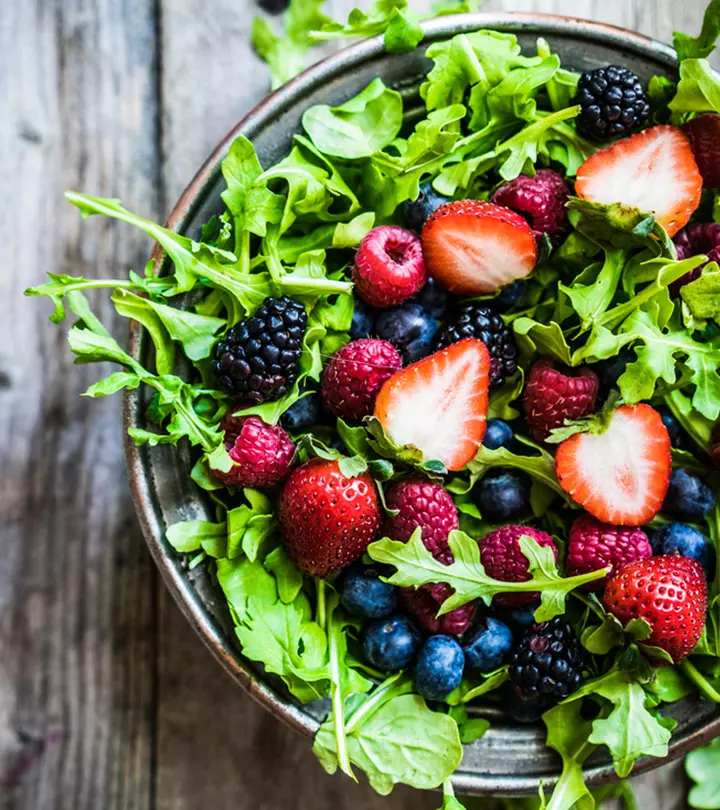



Community Experiences
Join the conversation and become a part of our empowering community! Share your stories, experiences, and insights to connect with other beauty, lifestyle, and health enthusiasts.